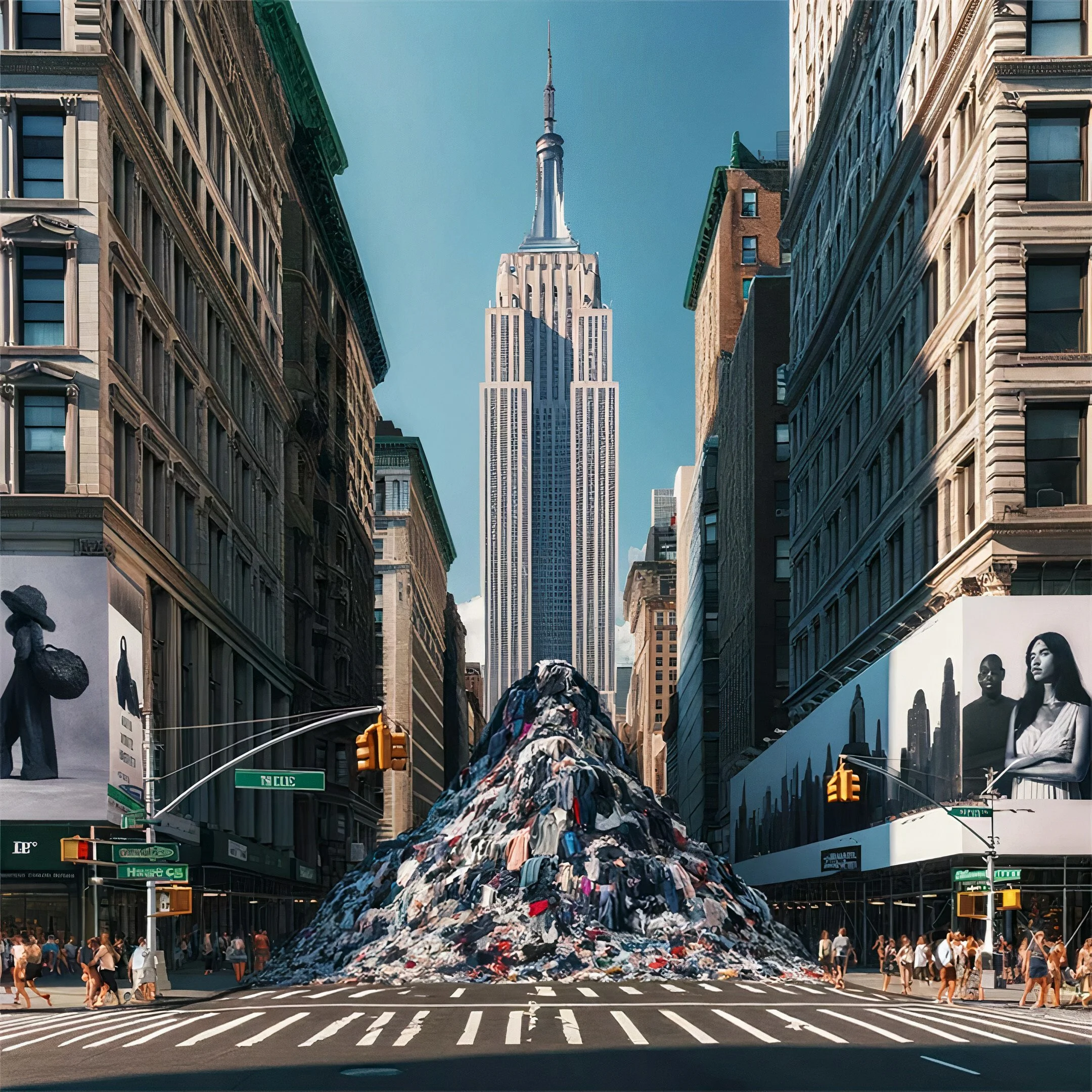Vestiaire Collective's Fight Against Fast Fashion
/Vestiaire Collective Bans Fast Fashion Giants From Its Platform/ 92 million tons of textile waste is discarded every year. That’s enough to fill the Empire State Building every day. Credit @Vestiaire Collective
Vestiaire Collective, the leading global second-hand luxury fashion platform, announces it is banning a second wave of fast fashion brands from its platform. This marks the second year in a three-year rollout to ban all fast fashion from Vestiaire Collective's website. Following last year's initial announcement, Vestiaire Collective saw 70% of members impacted by the ban come back to the platform to shop for better quality items and invest in second-hand. Furthering their commitment to create a more circular economy, Vestiaire Collective worked with a committee of nine fashion and sustainability experts to create a clear definition of fast fashion and leverage this framework to ban industry giants from its website.
Banning more fast fashion from Vestiaire Collective's website will spark debate, however, with the climate crisis accelerating and ninety-two million tons of textile waste thrown away every year, it is a necessary step to reduce fashion's environmental and social impact. As part of the company's mission to change the way people consume, Vestiaire Collective will utilize the platform to bring awareness to issues of textile waste and fashion overconsumption, as well as encourage other key fashion players to join the mission to change the industry. After a year of research and planning, starting today, Vestiaire Collective proudly bans a list of 30 brands including: Abercrombie & Fitch, Gap, H&M, Mango, Uniqlo, Urban Outfitters, and Zara among others.
Vestiaire Collective gathered key industry experts to help build a framework defining fast fashion based on the five criteria fueling overproduction and overconsumption:
Low price point: estimated average price point, also considering the repairability component
Intense renewal rate: the estimated number of collections or number of new items drops per year
Wide product range size: the number of items available at a given moment
Speed to market: the production cycle time, from designing phase to finished goods in store
Strong promotion intensity: the frequency and intensity of sale promotions
Vestiaire Collective's nine industry and sustainability committee members were selected based on their expertise and strong understanding of fast fashion's negative environmental and social impact.
Vestiaire Collective knows that banning fast fashion only works if consumers shop more consciously, and the company encourages buyers to think critically about their purchasing habits and the true impact of their choices. Vestiaire Collective created an educational journey for buyers and sellers who will see informational messages at every step of their shopping or listing experience. They will also receive practical alternatives for their existing fast fashion items via an online guide with resources for donation strategies and sustainability insights. Vestiaire Collective also commits to educating companies on the benefits of sustainable operations as well as evaluating existing relationships with partners and influencers based on their current practices.
To create awareness, Vestiaire Collective is launching a global campaign "Think First, Buy Second" across its digital channels. The campaign leveraging AI technology, will include a video and visuals of piles of clothes located in some of the most recognizable locations of the Global North, such as Times Square, or The Eiffel Tour to replicate what textile waste and landfills would look like in consumers' own countries. The campaign will encourage social media users to take the pledge in an effort to turn Black Friday into a Better Friday. Participants can choose between pledging to only buy second-hand this Better Friday, until the end of the year, in 2024 or to stick to second-hand forever.
FASHIONADO







